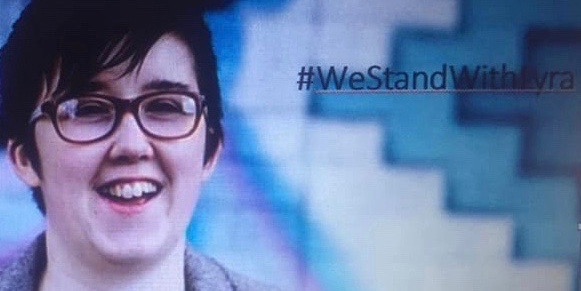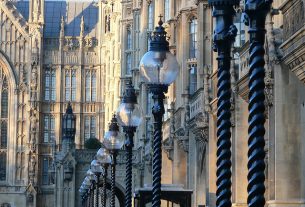This morning, detectives from the PSNI’s Major Investigation Team arrested a man and searched a house in Derry. Lyra McKee was shot dead in April 2019 during riots in Derry. Her death sparked renewed efforts to re-establish the political institutions in Northern Ireland which came to fruition earlier this year.
In February, four men were detained, and a 52-year old man was charged with the journalist’s murder, membership of an illegal organisation and possession of a weapon with intent to endanger life. The man whom the police arrested today for questioning is now at Musgrave police station in Belfast.
Last month, the Police Service of Northern Ireland located the gun that killed Lyra McKee after searching the Ballymagroarty area of Derry. The so-called New IRA claimed responsibility for the journalist’s murder. She was standing near a police vehicle observing the riots when she was killed by a bullet. Violence had erupted after PSNI searches in a Creggan housing estate. Ms McKee was covering the clashes and tweeting live when she was shot dead.
As an emerging, prominent voice in journalism, she had been preparing for the publication of a book about the1981 IRA murder of MP, Robert Bradford. Throughout her career, she wrote extensively about the troubles in Northern Ireland. She was also a campaigner and activist for the LGBT+ community.
Lyra McKee’s killing came at a time when Northern Ireland was in a political vacuum after the Stormont Assembly had collapsed in 2017 because of disagreements between the power-sharing parties. A string of talks failed to produce solutions, and it was only after the journalist’s murder that Sinn Fein and the DUP, in particular, redoubled efforts and finally agreed on a way to get the Stormont Assembly back up and running.
Speaking at Lyra McKee’s funeral which was attended by the then Prime Minister, Teresa May, the Taoiseach, Leo Varadkar, and the President of Ireland, Michael D Higgins, Father Martin Magill pressed politicians to find a way to end the political stalemate. Toward the end of last year, the British and Irish governments set out a plan to restore the NI institutions which the parties finally signed up to in January of this year.
On the first anniversary of her passing, Lyra’s partner, Sara Canning, described the time since the killing as the “most horrific and surreal year.” The anniversary mass was broadcast live online.
The National Union of Journalists joined in the commemorations and penned the hashtag #WeStandWithLyra to promote the values at the heart of Lyra’s work.
According to the New York-based Committee to Protect Journalists, at least 554 media workers and journalists have lost their lives because of their work between 2009 and 2019. Although death rates are slowing, many journalists have faced arrests and questioning with the community of journalists worldwide reporting a clamp-down on press freedoms.
In 2019, nearly 250 journalists were imprisoned, and this year-to-date, 11 have been killed with 64 journalists currently missing.




